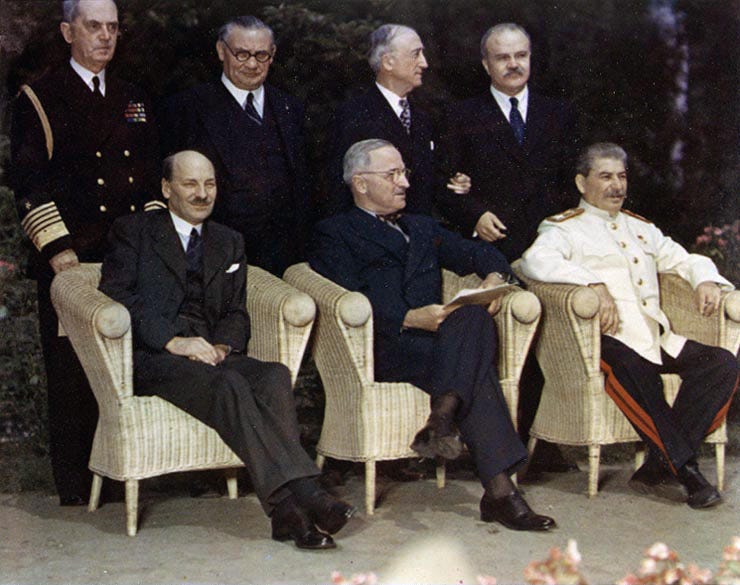This Week in History: August 1-4
A few interesting anniversaries have passed while I’ve been away, and I thought we should make some note of them. Remember FX will be back to normal operations on Tuesday!
August 1, 902: An Aghlabid army captures the Byzantine fortress at Taormina, completing the 75 year Muslim conquest of Sicily. The Aghlabid invasion, in 827, almost fizzled out in 828 with the failure of their first siege of Syracuse, but the Byzantine fleet prevented the Aghlabid army from retreating to North Africa (oops!) and so they stayed on Sicily instead. After gaining a foothold with the capture of Palermo in 831 the Muslims slowly expanded their control over the island until taking Syracuse on the second try, in 878. Taormina held out as the last Byzantine possession on Sicily for another 24 years.
August 1, 1798: The Battle of the Nile
August 1, 1927: The Nanchang Uprising marks the start of the Chinese Civil War between the Kuomintang and the Communist Party. In a direct response to the Shanghai Massacre of April 12, in which right-wing KMT forces purged CCP members from their ranks (and killed thousands of them, though the final casualty figures are disputed), a CCP army captured Nanchang, home of the Revolutionary Committee of the Chinese Nationalist Party. This was one of several CCP uprisings around the country. The Communists (or Left-KMT if you want to be a stickler about it) seized weapons and ammunition but, realizing they couldn’t hold the city against a Right-KMT counterattack, withdrew on August 5 and undertook what became known as the “Little Long March” south to Guangdong province (this didn’t go nearly as well for them as the later Long March would). China’s People’s Liberation Army dates its founding to this uprising.
August 2, 338 BCE (or thereabouts): Philip II of Macedon defeats a Greek army organized by Thebes and Athens at the Battle of Chaeronea. The outcome effectively ended any chance of Greek resistance to a Macedonian takeover. After harshly punishing Thebes, Philip engaged in heavy diplomacy to win over Athens and Corinth and isolate Sparta. He managed to unite most of the Greek city-states behind him in what historians call the “League of Corinth,” which he believed was essential in order to fulfill his plans to invade the Persian Empire. He didn’t live long enough to lead that campaign, but his son, Alexander the something or other, picked up where Philip left off.
August 2, 216 BCE (or thereabouts): At the Battle of Cannae in southeastern Italy, the Carthaginian general Hannibal annihilates a much larger Roman army in what has often been regarded as the closest thing to a complete military victory in history. Hannibal’s cavalry outflanked and completely encircled the Roman infantry in one of the earliest examples of a pincer movement, then attacked from all sides. Of the 86,000 or so Roman soldiers who began the battle (to about 50,000 for Hannibal), Livy says that the Carthaginians killed 67,500 and that’s the low estimate. Polybius cites a death toll of over 85,000. Especially for a battle in antiquity those figures are astonishing.
August 2, 1934: Paul von Hindenburg dies and is succeeded as President of Germany by Adolf Hitler, who prefers to go by the title “Führer.” What could go wrong?
August 2, 1945: Quite a bit, as it turns out. The Potsdam Conference ends with US President Harry Truman, British Prime Minister Clement Atlee, and Soviet Communist Party General Secretary Joseph Stalin reaching agreement on a plan to demilitarize, denazify, and administer occupied Germany.

Three best pals (Army Signal Corps via Wikimedia Commons)
August 2, 1964: The USS Maddox, in North Vietnamese territorial waters, exchanges fire with several North Vietnamese torpedo boats. The Gulf of Tonkin Incident, as it came to be known, along with a second alleged engagement two nights later that turned out to be fictional, kicked off the Vietnam War. Again, what could go wrong?
August 2, 1990: Iraq invades Kuwait
August 3, 1903: Rebels from the Internal Macedonian Revolutionary Organization declare the formation of the independent Kruševo Republic. The Ottomans brought the new nation to a premature end ten days later.
August 3, 1940: An Italian army crosses from Italian East Africa into British Somaliland, beginning an invasion that will end with Italy’s annexation of the colony on August 19. Britain organized a counterattack, Operation Appearance, which began on March 16, 1941, and ended with the British recapture of Somaliland on April 8. Following World War II Britain assumed control over Italian East Africa, and eventually the former British and Italian Somalilands gained independence and merged into Somalia. Nowadays the territory of British Somaliland, under the name Somaliland, considers itself independent of Somalia, though that claim is not recognized internationally.
August 3, 1960: Nigerien Independence Day
August 4, 1578: The Battle of Alcácer Quibir
August 4, 1791: The Treaty of Sistova ends the Austrian-Ottoman War of 1787-1791. This rather unremarkable treaty, ending a rather unremarkable war (the Ottomans lost a little territory, but that’s it), turned out to be quite remarkable in hindsight because it marked the end of the long (265 year) series of Ottoman-Habsburg conflicts. Austria’s attentions turned west, due to the French Revolution, and later turned to the rise of Prussia, while Russia became the Ottomans’ main adversary moving forward.

